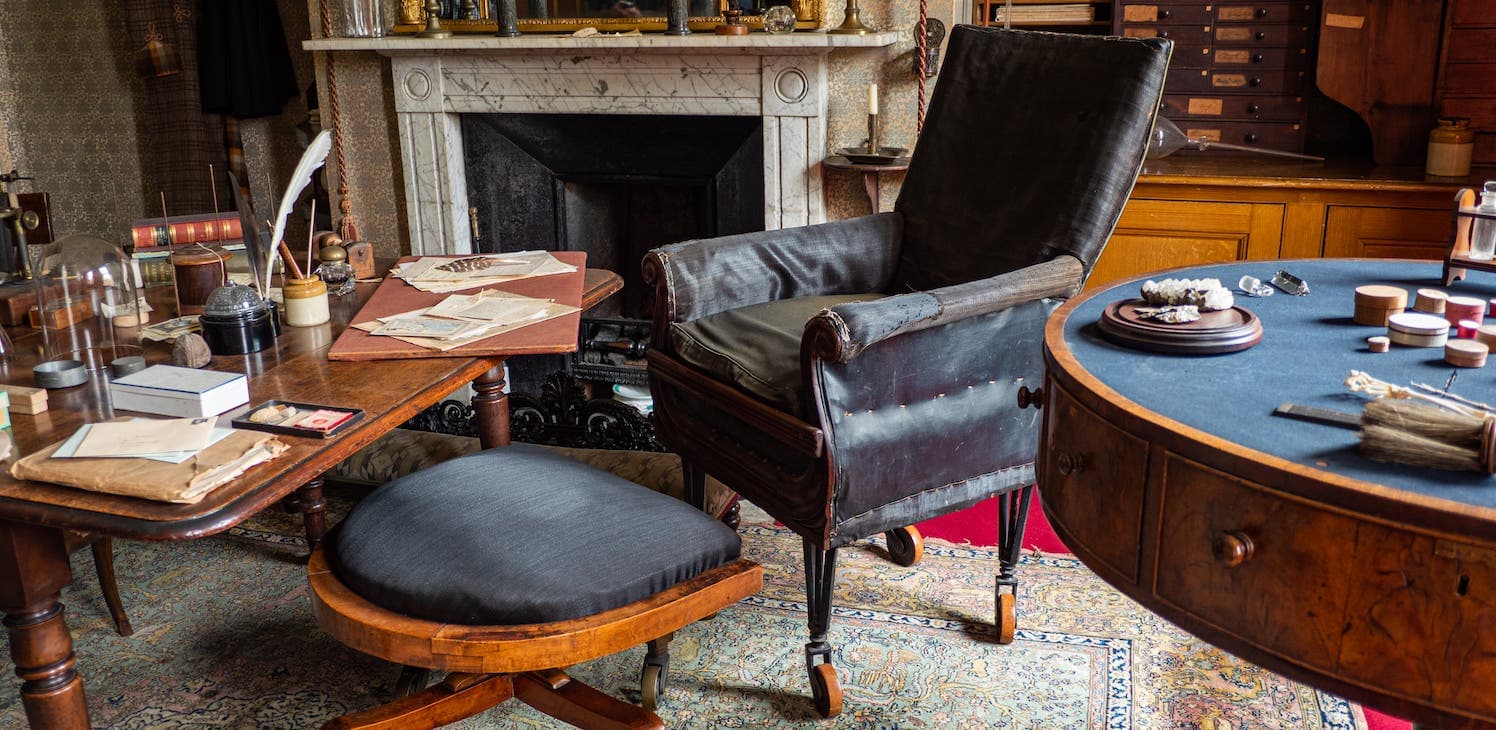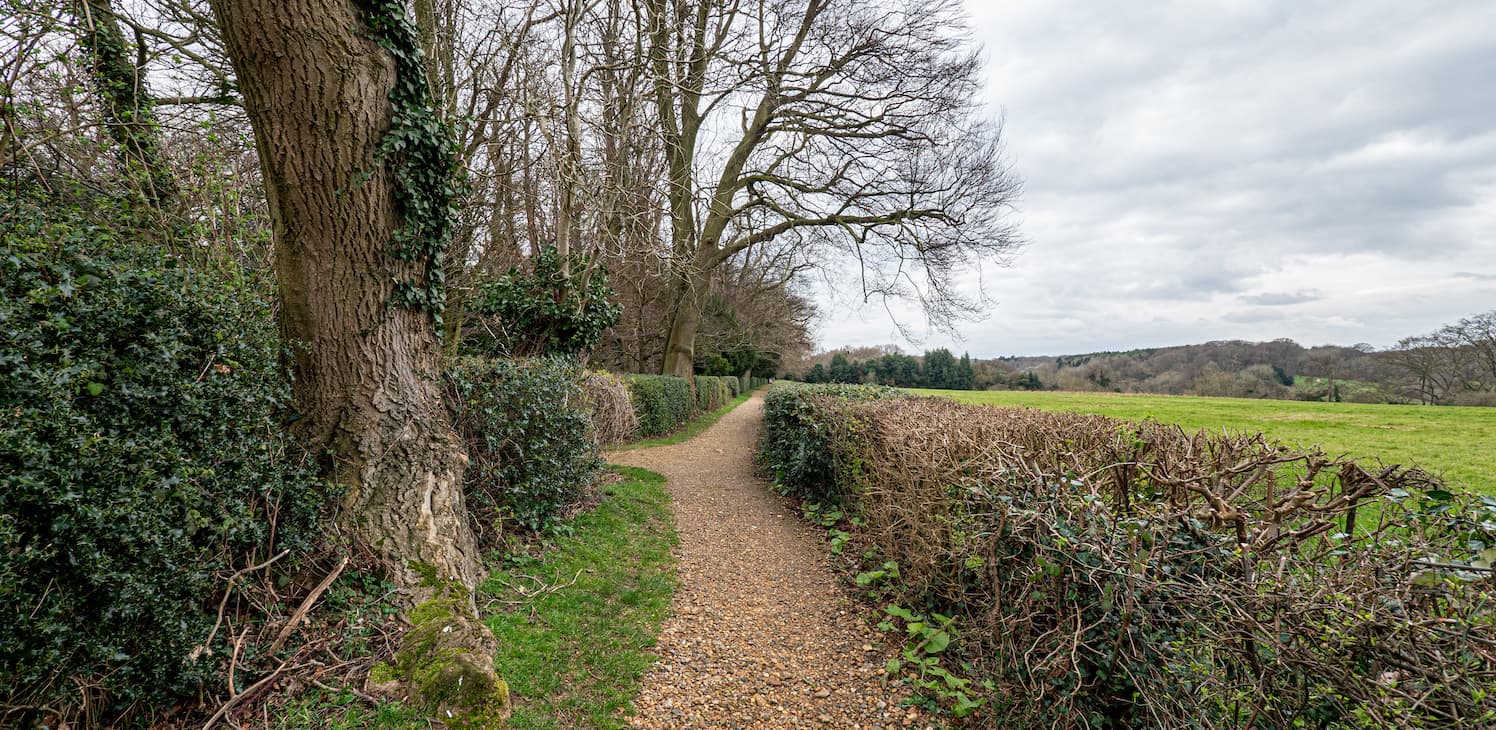My life goes on like Clockwork and I am fixed on the spot where I shall end it.
Darwin moved into Down House in Kent on 17th September 1842 and remained there for the rest of his life. It was his home and his work place. From here he observed, tested, experimented, corresponded, brought up children, entertained and, when his illness became too much to bear, retreated. Global scientific research came to him through an exchange of letters and at home, his work was aided by the scientific collaboration of his family.
In the late 1920s, Darwin's only surviving son, Leonard, helped to recreate his father's old study using old photographs, letters and memories. This is the study that can be seen at Down House today.
Darwin's daily routine
Darwin's son Francis described his father's daily routine at Down in middle and later life. There was little variation to the days:
| 7 am | Rose and took a short walk. |
| 7.45 am | Breakfast alone. |
| 8-9.30 am | Worked in his study; he considered this his best working time. |
| 9.30-10.30 am | Went to drawing-room and read his letters, followed by reading aloud of family letters. |
| 10.30-12 or 12.15 | Returned to study, which period he considered the end of his working day |
| 12 noon | Walk, starting with visit to greenhouse, then round the sandwalk, the number of times depending on his health, usually alone or with a dog. |
| 12.45 pm | Lunch with whole family, which was his main meal of the day. After lunch read The Times and answered his letters. |
| 3 pm | Rested in his bedroom on the sofa and smoked a cigarette, listened to a novel or other light literature read by ED. |
| 4 pm | Walked, usually round sandwalk, sometimes farther afield and sometimes in company. |
| 4.30-5.30 pm | Worked in study, clearing up matters of the day. |
| 6 pm | Rested again in bedroom with ED [Emma Darwin] reading aloud. |
| 7.30 pm | Light high tea while the family dined. In late years never stayed in the dining room with the men, but retired to the drawing-room with the ladies. If no guests were present, he played two games of backgammon with ED, usually followed by reading to himself, then ED played the piano, followed by reading aloud. |
| 10 pm | Left the drawing-room and usually in bed by 10.30, but slept badly. |
| Even when guests were present, half an hour of conversation at a time was all that he could stand, because it exhausted him. |
Account summarised in Charles Darwin: A Companion by R.B. Freeman, see The Complete Work of Charles Darwin Online.





